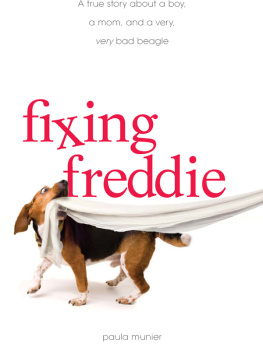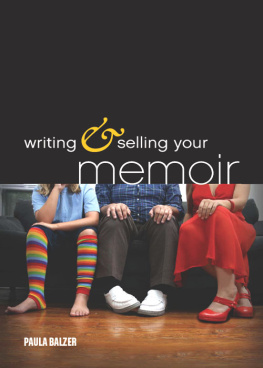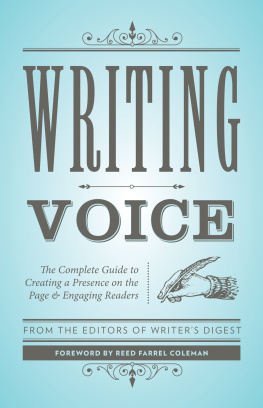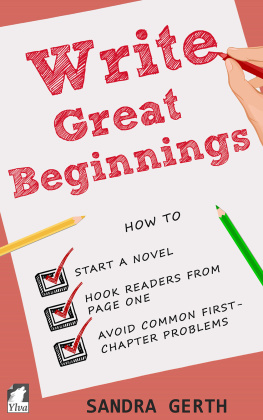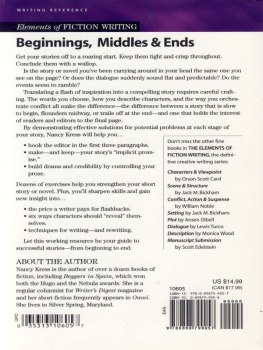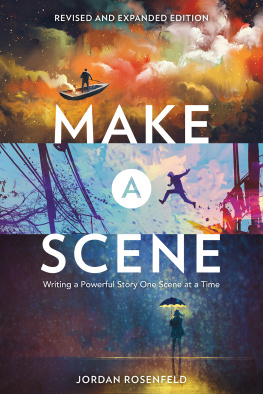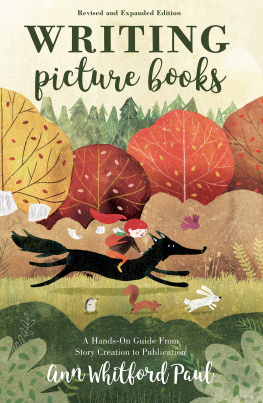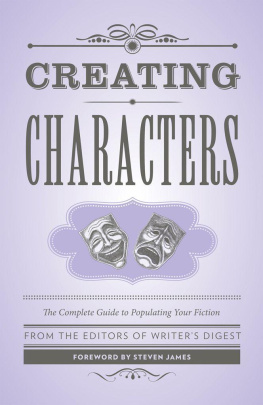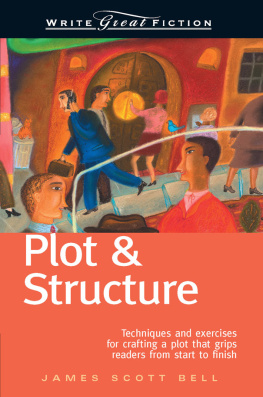The Writer's Guide to Beginnings. Copyright 2016 by Paula Munier. Manufactured in the United States of America. All rights reserved. No part of this book may be reproduced in any form or by any electronic or mechanical means including information storage and retrieval systems without permission in writing from the publisher, except by a reviewer, who may quote brief passages in a review. Published by Writers Digest Books, an imprint of F+W Media, Inc., 10151 Carver Road, Suite # 200, Blue Ash, OH 45242. (800) 289-0963. First edition.
For more resources for writers, visit www.writersdigest.com .
Introduction
The first page sells the book; the last page sells the next book.
Publishing Proverb
There is something magical about the beginning of a good story. Something profoundly moving about Once upon a time..., the classic opening that has resonated with readers for hundreds of years. If youve ever told a bedtime story to a child and tried to shorten it in the name of a good nights sleep, youve suffered the indignity of being told quite firmly to start over atthe beginning because kids know that the best stories have beginnings too good to miss.
Beginnings are not only the door to the fictive world, they are the door to the publishing worldfrom agents and editors to the readers themselves. But this is a door that may shut as quickly as it opens. Agents and editors are notoriousmyself includedfor passing judgment on a manuscript based on only a few opening lines, paragraphs, or pages.
Readers are just as quick to judge. Consider this: The typical book buyer decides whether or not to buy a book in less than sixty seconds. The reader sees the cover and is drawn to it. Check (or click)! The reader notes the title and reads the jacket copy. Check (or click)! Then the reader opens the book to the first page and reads it. Sold (or not)!
Such is the power of a well-crafted story opening. Nail it, and you win yourself a sale, a reader, maybe even a career. Flub it, and you may lose yourself a sale, a reader, maybe even a career. As a writer, Ive rewritten the beginnings of my own stories countless times, knowing that without a good beginning, no one will bother reading through to my mind-blowing ending. As an editor, Ive driven writers crazy with my insistence that they get their beginnings just right because I know that good beginnings can equal good sales. And as an agent, Ive passed on thousands of projects whose beginnings failed to capture my imaginationand sold the ones whose beginnings rocked their stories right into print.
Crafting a compelling opening isnt easy. The most successful stories grab the reader from word one and never let go. But thats just the beginning of what good beginnings do. The best beginnings are also rich in theme, voice, and nuance. They introduce the protagonist that readers will follow anywhere; they ground the story in setting and sow the seeds of plot points and subplots. Most important, beginnings are the harbingers of the exciting journey to come, hinting at the ending even as they shift the story into high gear, catapulting it into Act Two and sweeping the reader along for one hell of a ride.
In Beginnings, youll learn how to craft story openings that impress agents, engage editors, and captivate readers. Inspired by my popular First Ten Pages Boot Camp at Writers Digest University, this one-of-a-kind primer reveals the secrets of creating beginnings that sellno matter what your genre. Complete with exercises and prompts as well as examples from todays best-seller lists, Beginnings provides all the tools and techniques youll need to create the kind of beginning guaranteed to keep readers turning the pages.
So lets begin: Because if the beginning doesnt work, the rest of the story doesnt really matter.
Chapter One
In the Beginning Was the Word
Anatomy of a First Page
At the beginning of everything is the word.
It is a miracle to which we owe the fact that we are human.
But at the same time it is a pitfall and a test,
a snare and a trial.
Vaclav Havel
The most difficult and complicated part of the writing process is the beginning.
A.B. Yehoshua
"Tell me a story."
These are words that have resonated with us from our very beginnings as a species. Story is part of what makes us human; in fact, storytelling is one of the few human traits that occurs in all cultures across our known history.
Since the dawn of man, weve gathered around the fire, telling stories to understand the world and our place in it, to process the past and prepare for the future, to entertain and soothe, and, ultimately, to pass on our collective knowledge and wisdom to the next generation. Storytelling is our rage against the darkness, lighting the way for our children and our childrens children.
Our stories live on, to be told again and again and again. This timelessness of story is why storytellers play a sacred role in many cultures, as anointed elders who earn their place by capturing and holding the attention of their people with stories well told from the very first word.
When we answer that call to tell me a story, we take on that sacred mantle of storyteller ourselves. So we need to start strong, too, just as our predecessors did. We need to tell our own stories well, from the very first word.
We have our work cut out for us. Unlike the storytellers of old, we do not command the attention of an audience gathered around the only source of light in the village to hear the only stories being told that evening by the only anointed storyteller in the tribe. We must compete with countless points of light, countless stories being told by countless storytellers, in books and at the movies and in our own living roomseven on our phones.
The competition is fierceand thats why your first words must be fierce as well.
Those who tell the stories rule the world.
Hopi Proverb
Fierce First Words
The best story openings are fierce enough to grab the attention of readers, editors, and agents. This means keeping a lot of balls in the air. Skillful storytellers are master jugglers: They juggle voice, character, premise, setting, dialogue, conflict, point of view, style, and theme in an endless and seamless circle of story. They toss those story balls and knives and flamethrowers around with a fierceness we havent quite experienced before. And thus we are compelled to read on.
A tall order.
Once I was in a writers group where one of the writers was struggling with her opening. Margaret was a good storyteller, and while her story was solid, her opening did not work. Her first words were unworthy of the rest of her novel, and she knew it. Shed rewritten the first page a dozen times but remained unhappy with the results. She was stumped.
She stayed behind after everyone else had left, and we sat on my sofa and talked about the problem with the opening of her thriller.
When in doubt, I said, look to the masters. And I jumped up and went to my bookshelf, pulled down the first several thrillers I found, and stacked them on the coffee table.
We took turns reading aloud the first page of each novel. When we were finished, we looked at each other and grinned.


